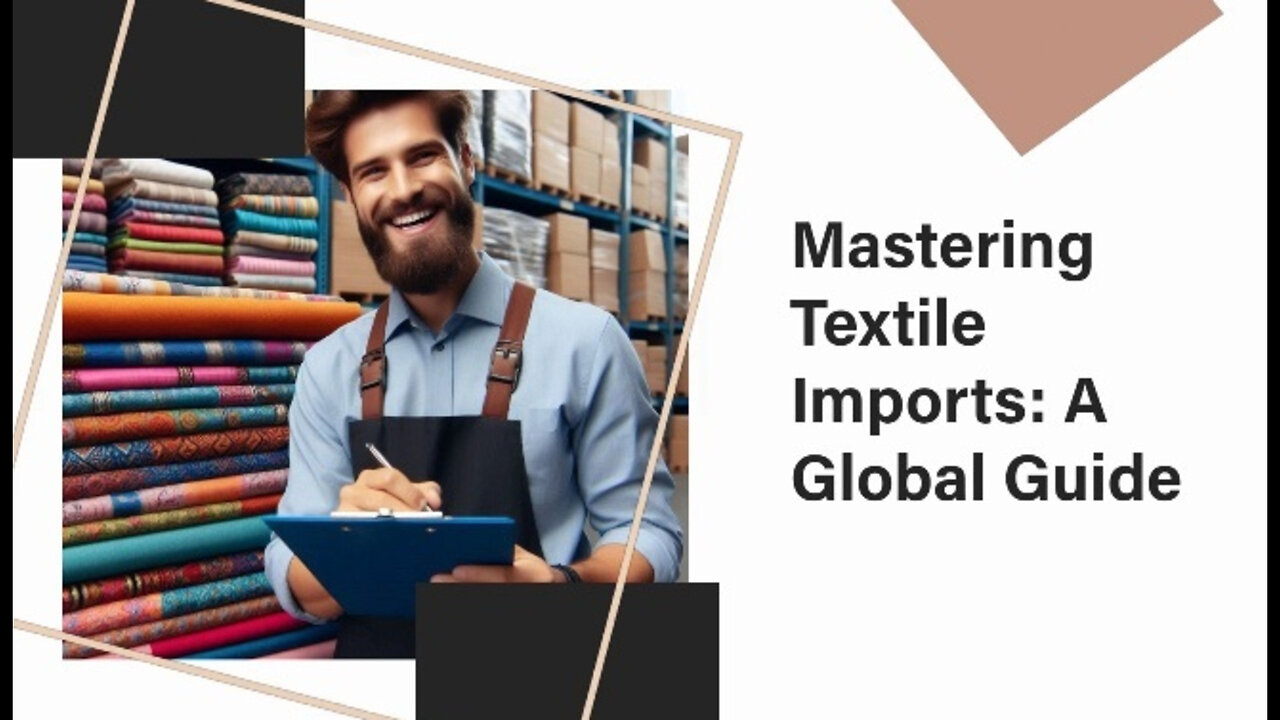Premium Only Content

Mastering Textile Imports: Navigating Customs, Bonds, and Security Filing
ISF Filer || isf@isffiler.com || 858-280-9374 || www.isffiler.com
This response delves into the importance of customs brokerage in the context of importing textiles. It discusses the role of a customs broker and how they facilitate smooth importation, handle paperwork, and communicate with customs officials. The concept of customs bonds is explained, highlighting their significance in ensuring the payment of duties, taxes, and penalties. The mandatory requirement of Importer Security Filing (ISF) is covered, emphasizing the need to provide detailed information about shipments to customs authorities. The response also emphasizes the importance of compliance with international trade regulations, including labeling requirements, country of origin rules, and product safety standards. Lastly, the impact of tariffs and trade agreements on the textile industry is discussed. The response concludes by summarizing the need for a comprehensive understanding of customs brokerage and related concepts to successfully navigate textile imports.
#usimportbond #isfcustomsbroker #uscustomsclearing #isfentry
Video Disclaimer Here: This video is intended for educational purposes and has no affiliation with US government entities.
00:31 Working with a customs broker is essential for importing textiles, as they handle paperwork, regulations, and communication with customs officials to ensure smooth and compliant importation.
00:54 A customs bond is necessary for importing goods, including textiles, as it serves as a financial guarantee for duties, taxes, and penalties. There are two types of bonds - single-entry for one-time imports and annual continuous for frequent importers.
1:20 Importer Security Filing (ISF) is mandatory for importers and involves providing detailed shipment information to US Customs at least 24 hours before loading onto a vessel to avoid penalties and delays in customs clearance.
1:47 Understanding international trade regulations, tariffs, and trade agreements is crucial for successful textile imports. Non-compliance can lead to delays, fines, or rejection of shipments at the port of entry, while staying informed can provide a competitive edge in the industry.
-
 20:41
20:41
Stephen Gardner
1 hour ago🔥You Won't BELIEVE What JUST Happened To Don Trump Jr.!!
4.55K35 -
 1:06:40
1:06:40
Donald Trump Jr.
5 hours agoThe Left is Taking one L After Another, Live with Michael Knowles | Triggered Ep. 217
40.6K59 -
 47:17
47:17
Kimberly Guilfoyle
5 hours agoWoke Gets DOGE’d, Live with AJ Rice & Jarrett Stepman | Ep. 197
32.2K28 -
 20:11
20:11
Candace Show Podcast
3 hours agoBecoming Brigitte: Candace Owens x Xavier Poussard | Ep 6
106K229 -
 LIVE
LIVE
Dr Disrespect
8 hours ago🔴LIVE - DR DISRESPECT - ELDEN RING DLC - REVENGE
3,050 watching -
 LIVE
LIVE
LFA TV
1 day agoThe End of the Trans-Atlantic Alliance | TRUMPET DAILY 2.17.25 7PM
323 watching -
 LIVE
LIVE
2 MIKES LIVE
4 hours ago2 MIKES LIVE #181 Deep Dive Monday!
139 watching -
 LIVE
LIVE
Quite Frankly
5 hours ago"Low Tide at The Pier: Munich Tears, World Gov Summit, More..." 2/17/25
1,197 watching -
 DVR
DVR
The Based Mother
5 hours agoBOOK BAN LIES. Karen England and the MSM fairy tale that books are being “banned” by fascists
56 -
 1:01:52
1:01:52
In The Litter Box w/ Jewels & Catturd
1 day agoBest Presidents' Day Ever! | In the Litter Box w/ Jewels & Catturd – Ep. 743 – 2/17/2025
96.7K63